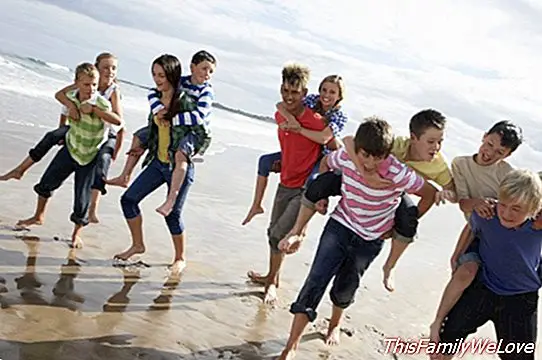How to be responsible in adolescence

Adolescents perform acts that may not be too important: one day they copy in an exam, another "fardan" to have stolen a rouge in a department store, or is the hero of the padilla to go to a party after having lied to parents. We can think, that they are "teen things"; Yes, of course, but irresponsible teenagers.
The responsibility in adolescence must be educated
The responsibility refers to the virtue or habitual disposition of assume the consequences of their own decisions, answering them at all times. But, in order for some responsibility to be given, at least two requirements are necessary:
- The freedom: for there to be responsibility, the actions must be carried out freely. In this sense, neither the animals, nor the insane, nor the small children are responsible for their actions, because they lack the use of reason and this is essential for freedom.
- The rule: There must be a norm from which the facts can be judged.
To recognize something, first you have to know it
It is a common mistake to demand from our children behaviors that we have not "explained" previously. Thus, for example, we can prohibit a child from watching television during the week "Because I am your father and here what I say is done".
Logically, in the first opportunity that is alone, he will not hesitate to put his favorite series, because he already feels older and his reasoning will be: "I see it because I feel like it". If on the contrary, we explain that if you arrive from school and before dinner you only have at least three hours to do your homework - at ESO you have enough homework - and devote a third to watching television, plus a while to talk on the phone with friends, another to have a snack, a few minutes to organize the task, etc., etc., will have an insufficient time for what, probably, will not be able to finish on time.
Two excuses to avoid responsibility in adolescence
- To avoid responsibility to others, it is common to blame someone else, or to say "I am free and do what I want", wanting to express that I do not render accounts of my behavior to anyone. Obviously human freedom does not work like that.
- To remove responsibility before one's conscience, a habitual recourse is to avoid reflecting: stun the head until it can not think. Another system is saying "I spend everything" or "No matter I care". But the conscience will try to protest against this neglect.
Tips to teach responsibility to teenagers
- Continuous punishment does not help to develop responsibility, because in the end they get used to them. They only increase their feelings of guilt, insecurity or rebellion. They stop doing an act only to avoid punishment; once it disappears, you will have no problem acting in the same way.
- Punishments are only useful if they are aimed at solving the consequences of an act.
- Later, with positive authority we must dialogue with them to help them reflect so much to prevent the negative act from repeating itself, as to solve the consequences of it.
- We must value the work and the effort of the children before any activity. The best praises to build a sense of responsibility are: "How proud you must be with this, how good you have been, what is responsible, how well you take care of your sister,".
- We have to educate in freedom, but putting limits and telling them clearly what can not be done and why. As they grow up, you have to agree with the children on some rules and the consequences of non-compliance.
- The adolescent must set his own goals. For example, that you make a "real" schedule of the time you need to study and in which subject you should try harder. We can advise you when you have done it, but without telling you what to do.
Marina Berrio




